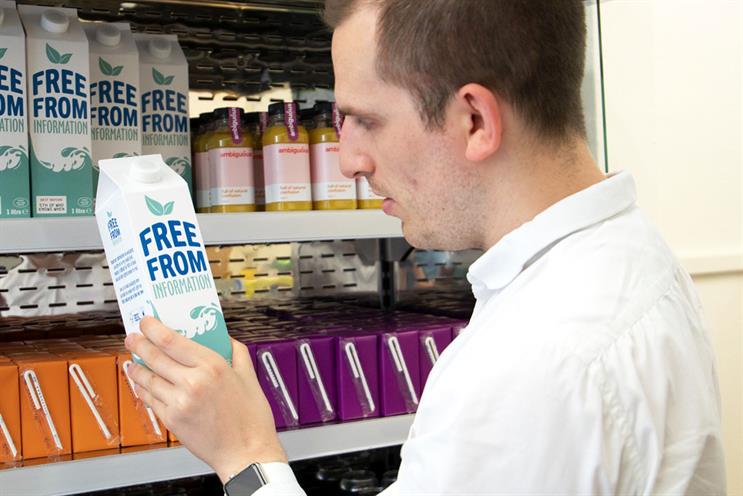
The Royal National Institute of Blind People (RNIB) opened a mock corner shop to highlight the inaccessibility of packaging by stocking the shelves with vaguely labelled products.
The "WhatsIn store" pop-up provided an insight into how it feels to be confronted with inaccessible packaging, something regularly experienced by people with sight loss.
Hidden cameras in the shop, in Hammersmith, West London, filmed shoppers' reactions to the blank or intentionally vague packaging before the shopkeeper revealed that this is often the reality for people with sight loss when they are out shopping or want to buy food on the go.
Matt Stringer, chief executive at RNIB, said the charity was campaigning for products and services to be reimagined with accessibility in mind.
"Everyone has the right to know what they're buying, yet packaging information is so often inaccessible for blind and partially sighted people," he said:
"Our research shows that almost three-quarters of people feel that accessing product information on food packaging is very important to them. Yet nine in 10 said that packaging is difficult or impossible to read," he added.
The & Partnership delivered the activation that was open from 19-23 August. "WhatsIn store" was part of RNIB's "Design for everyone" campaign.
Yan Elliott, joint executive creative director at The&Partnership, said: “Tackling the issue of inaccessible design is an ongoing mission for both us and RNIB... We hope the campaign encourages businesses to work with RNIB to find solutions for their products as there are many technologies and tools out there that can help make packaging accessible for everyone.”
One brand making progress on accessible packaging is Kellogg, which has added Navi Lens technology to all its cereal boxes. The boxes allow a smartphone to detect a unique on-pack code and play back labelling information to shoppers.


